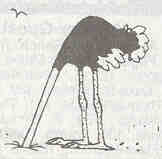
R. M. Nolasco
The first and last time Dr. Ricardo Ma. Nolasco and I actually had an exchange of opinion was when he invited comments to a draft of his article, What Philippine Ergativity Really Means, during the latter half of 2006. I emailed my comments and to my surprise, he emailed me back his honest reply. The quick, polite and professional response told me something about the man.
Then Ariel Agcaoili, Assistant Professor/Coordinator, Dept. of Indo-Pacific Languages and Literature, Univ. of Hawaii at Manoa, emailed me early in 2007 that Dr. Nolasco was invited as the keynote speaker for the NAKEM Conference held at the Mariano Marcos State University in Batac, Ilocos Norte, on May 23, 2007. And there Dr. Nolasco dropped what I thought was a bomb or sang what I suspected was his swan song. What’s remarkable was that his audience didn’t even realize he dropped the MLE bomb. Either that or in the usual Ilocano easier-to-appease-than-rock-the-boat disposition, they found it more politically convenient to do the  ostrich thing. Except for the NAKEM stirring, haven’t heard of an Ilocano-based MLE initiative thus far. [Ariel Agcaoili assures me he’s going back home middle of the month to do something about it.]
ostrich thing. Except for the NAKEM stirring, haven’t heard of an Ilocano-based MLE initiative thus far. [Ariel Agcaoili assures me he’s going back home middle of the month to do something about it.]
The title of Nolasco’s keynote speech at the NAKEM Conference was in itself provocative: “Maraming Wika, Matatag Na Bansa.” In his capacity as Chairman of the Komisyon sa Wikang Filipino (KWF), Dr. Nolasco went on to articulate on the advantages of a mother tongue-based multilingual education–which is the antithesis of our current bilingual education system. As KWF Chairman, the man was actually espousing and promoting the parallel development of the so-called local or regional languages for cultural diversity instead of following the long held Lope K. Santos-instigated establishment position of promoting Filipino as the unifying national language. The vehicle to achieve this, he said, is a mother tongue-based multilingual education program or MLE. This MLE concept is essentially in contravention to Exec. Order 210 (2003) issued by Pres. Gloria M. Arroyo. That, I thought, would be adequate reason for Dr. Nolasco’s employer to sack him as sworn guardian of Filipino, the Wikang Pambansa.
But no such thing. On Feb. 12, 2008, Dr. Nolasco issued a press statement, “LANGUAGES DO MATTER!“, in which he reiterated the major points enunciated in his NAKEM keynote speech. “For multilingual based education to work,” he emphasized, “I can think of four (4) conditions that must be met (although there may be more). One, good curricula (i.e., cognitively demanding). Two, good teachers (i.e. competent in the required languages, content and methods). Three, good teaching materials (i.e. error free). And four, community support and empowerment (i.e. the community is allowed to make decisions on school matters).”
That Dr. Nolasco has survived, even thrived, in a milieu that he himself influenced to put some separation from that cultivated by the late Lope K. Santos and other predecessors at KWF is a testament to the man’s courage and his guts to uphold the validity of his convictions.
Among the many articles he has written pertaining to multilingual education are:
- A Primer on Mother Tongue Based Multiligual Education & Other Issues
- The Prospects of Multilingual Education and Literacy in the Philippines
- Language Martyrs
Dr. Ricardo Ma. Nolasco is an associate professor of the Department of Linguistics, University of the Philippines, Diliman; former board member of the Linguistics Society of the Philippines; an adviser for multilingual education (MLE) initiatives of the Foundation for Worldwide People Power; and Acting Chair of the Komisyon sa Wikang Filipino. His specialization includes: Bicol Syntax, Sorsoganon language, Southern Philippine Languages Morphosyntax, Theoretical and Structural Linguistics, Sociolinguistics.